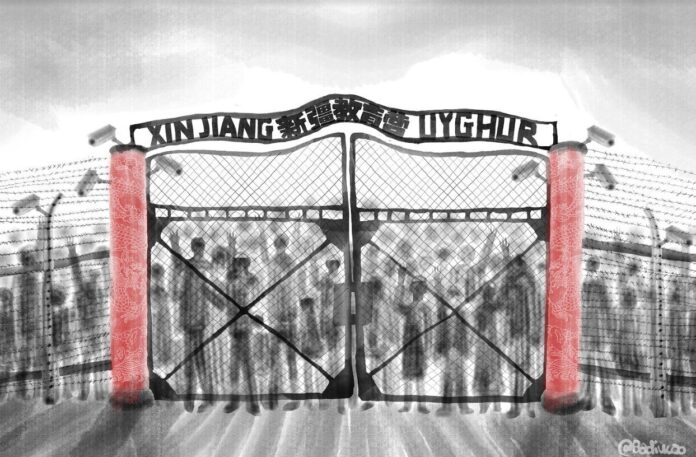(TibetanReview.net, May21’21) – The parliament of the Baltic state of Lithuania has on May 20 described China’s treatment of its Uyghur minority as “genocide” while also calling for talks to resolve the Tibet issue. It has also voted to call for a UN investigation of the internment camps in Xinjiang and to ask the European Commission to review relations with Beijing.
The Lithuanian parliament is only the latest to call China’s persecution of the mostly Uyghur Muslims in Xinjiang “genocide.”
Earlier, The Joe Biden administration in the United States used the term “genocide” to describe China’s actions towards the Uyghurs, as have the parliament of countries such as Britain and Canada.
Beijing denies abusing the minorities and has condemned countries for using the term.
The non-binding resolution, supported by three fifths of Lithuanian parliament members, also called on China to abolish a national security law in Hong Kong, and to let observers into Tibet and begin talks with its exiled spiritual leader, the Dalai Lama.
Neither Prime Minister Ingrida Simonyte nor Foreign Minister Gabrielius Landsbergis participated in the vote, despite being present in the parliament, reported the Reuters May 20. The same thing had happened in the UK and Canadian parliaments also.
“We support democracy, as we will never forget the cruel lesson of living under occupation by a Communist regime for 50 years”, Dovile Sakaliene, a lawmaker who has been blacklisted by China and who sponsored the resolution, has said.
The report cited rights groups, researchers, former residents and some Western lawmakers as saying authorities in Chinese ruled Xinjiang province had arbitrarily detained around a million Uyghurs and members of other primarily Muslim minorities in a network of camps since 2016.
It noted that Beijing initially denied the camps existed but had since claimed them to be vocational training centres designed to combat religious extremism.






